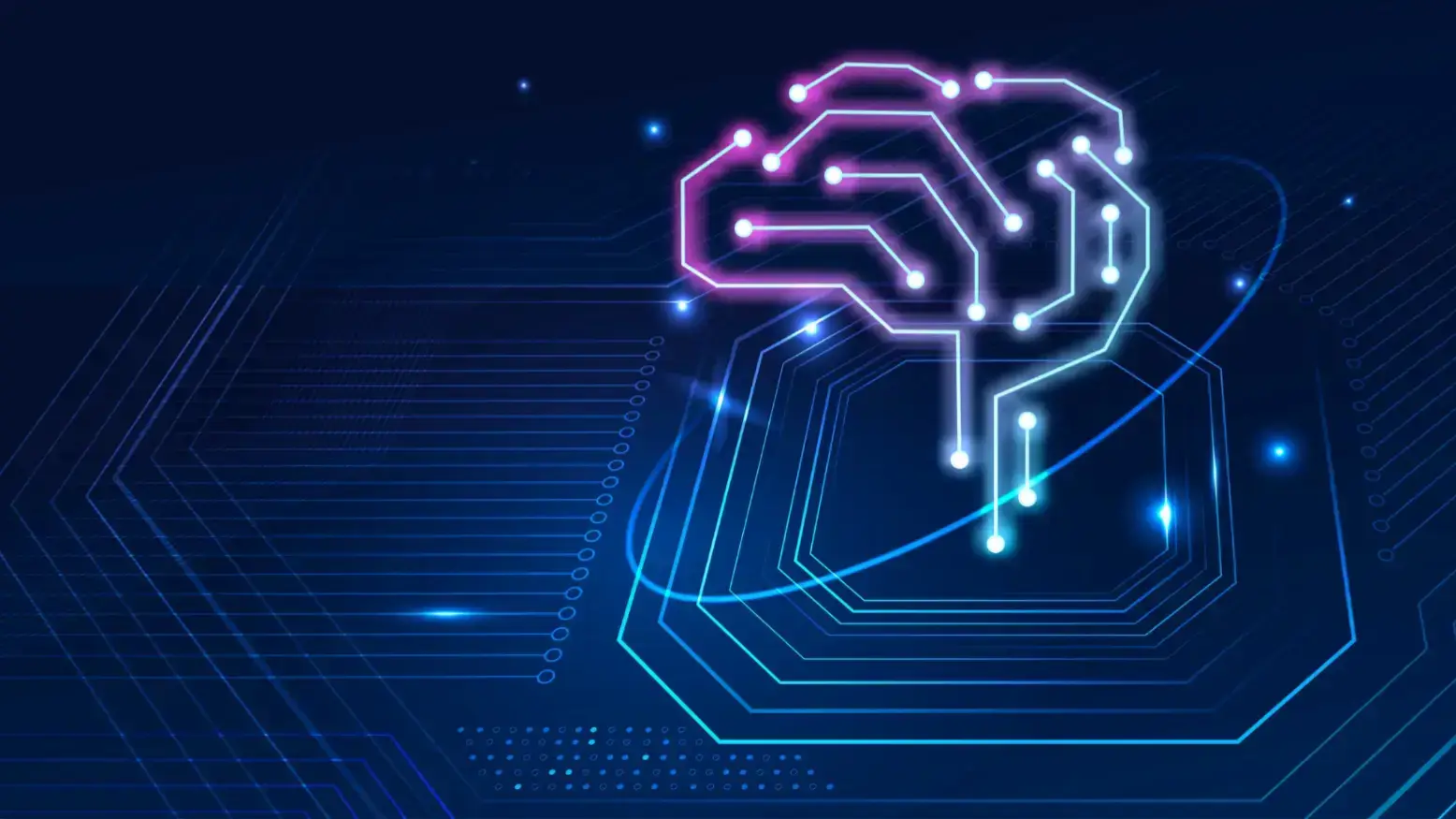Have you ever wondered how many businesses there are in the world? The number is astonishing. According to statistics, almost 359 million companies were registered in 2024, and this number keeps growing, with new businesses being added every year.
The real question is, how do all these companies compare to the enormous competition?
Of course, not all companies get to the stage where they start making profits. In fact, 20% of them fail in their first year of operation, while another 50% fail after five years in business. Yet, there are those who overcome hurdles and become successful.
What’s the secret to this resilience? Many things, but one key factor is the ability to adjust and offer customers tailored experiences. That’s where the role of AI is pivotal.
In this article, we’ll explore the role of AI in website personalization and how businesses can use AI services to increase website conversions and retention rates. Sit tight, and let’s get right into it.
Article Shortcuts:
- How AI Personalization Works
- Application of AI Personalization
- Benefits of AI Personalization
- Implementing AI Personalization
- FAQ

How AI Personalization Works
AI personalization is just what it sounds like. It’s the use of artificial intelligence with the purpose of offering services or products tailored to the specific needs of individual customers.
AI can process vast amounts of data in real-time, including what people have been searching for and what they have recently bought. This provides businesses with invaluable insights into their behavioral patterns.
Using this insight, businesses can predict what products or services their customers might be interested in and make compelling offerings tailored to their needs.
Here are the core technologies powering AI in website personalization:
- Machine Learning (ML): ML algorithms sift through user data to identify patterns and predict future behavior, helping businesses present the right content at the right time.
- Natural Language Processing (NLP): NLP analyzes user input (such as search queries or chat interactions) to better understand their intentions and preferences.
- Predictive Analytics: This aspect of AI uses historical data to forecast potential user actions, allowing for proactive personalization. For example, it can send reminders or recommendations before a user even thinks of them.
- AI-based Testing: AI can automate and optimize A/B testing and multivariate testing. Instead of manually configuring and running tests, AI algorithms can dynamically adjust variables and target different user segments in real time. This allows for faster iteration and more effective personalization strategies.
Combining these technologies creates a powerful engine for personalization that continuously learns and adapts to each customer.
Think of Amazon or marketplaces like this. When people view or add a product to their shopping cart, the platform automatically suggests similar products in the recommendation section that might be of interest to them.
This way, instead of going somewhere else, they engage with the site longer and are more likely to make a purchase.

Application of AI Personalization
AI personalization is not only useful for suggesting product recommendations; its applications are much more diverse. Let’s examine how businesses are using AI to enhance website user experiences.
-
Targeted content delivery
One of the reasons some websites keep users engaged and make them want to come back and repurchase is because they deliver the right content at the right time.
Personalized content makes people feel valued. They feel like they’re not just interacting with another website, but the brand they’re buying from actually knows them and understands their needs.
-
Chatbots and virtual assistants
Chatbots have long become essential for running a successful business online. People often have questions about services or products, and it’s crucial to respond quickly.
AI-driven chatbots have taken the traditional chatbots a step further. Now, they not only answer questions in real-time, but they understand the intent behind each query and reply in a human-like manner, providing enhanced user experiences.
-
Personalized pricing and promotions
People are bombarded with ads and offers every day, making it difficult for companies to stand out. AI personalization solves this issue.
By offering insights into your customers’ previous purchasing history, behavioral habits, and social media preferences, you can fine-tune your deals and discounts and ensure they appeal to and benefit the right people.
-
Personalized onboarding experiences
With AI, brands can provide custom website experiences.
Rather than just presenting a generic welcome message you see here and there on the web, you can implement a personalized onboarding flow that would greet visitors by name and offer them a tailored tour of key features most likely to spark their interest.
These could be video instructions, interactive tutorials, or step-by-step guides that adjust in real time based on how users interact with the site.

Benefits of AI Personalization
AI personalization offers many benefits to businesses, and brands that have already integrated it have noticed significant results. Here are the key benefits of AI personalization:
-
Increased conversions
Offering personalized website experiences allows businesses to boost conversions. People who see tailored content or product recommendations and are guided throughout the process are more likely to stay on the site and take the desired action.
-
Enhanced customer experiences
Users expect personalized experiences; when they don’t get them, they usually leave the site as quickly as they come. AI personalization by constantly improving and following a testing process of individual approach improves retention rates.
By offering a tailored user journey, websites that use AI are viewed as more engaging, leading to more interactions and higher customer satisfaction.
-
Improved customer loyalty
When people feel that a company cares about them and really knows what they want, they are more likely to become recurring customers, which leads to more repeat business.
-
Increased ROI
Last but not least, AI personalization helps boost ROI by precisely targeting marketing efforts. Rather than spending budget on broad campaigns, companies can direct their efforts toward high-intent prospects, cutting down on wasted advertising costs.
Implementing AI Personalization
If you’re thinking about implementing AI personalization, it’s vital to do it correctly. Here’s a step-by-step breakdown of what needs to be done:
-
Data collection and analysis
First things first, you need to benchmark your success metrics. This will help you understand how your website performs and whether your marketing initiatives bring the desired results.
Once you know what metrics you want to measure, you need a bunch of data collection tools.
Start by collecting data from multiple sources, such as website analytics, CRM systems, and social media. AI will help you segment this data effectively, ensuring your marketing efforts align with your goals.

-
Testing and optimization
Personalization isn’t a one-time task. It’s an ongoing process that requires continuous refinement. Therefore, one of the most important steps here is to implement a robust testing process.
By running A/B testing, businesses can compare how people interact with different features and measure which of the initiatives works best to increase website conversions.
AI-based testing can be a game-changer for businesses, especially in eCommerce. AI can automate and streamline the process by analyzing vast datasets, predicting potential outcomes, and offering insights that might be missed with manual testing.
If your business operates in eCommerce, you should also consider specialized eCommerce testing services to optimize customer experiences further and gain a competitive advantage in the digital space.
Dedicated testers will ensure that all personalized elements, such as product recommendations and dynamic content, run as they should across various devices and platforms.
-
Ensuring data privacy and security
When you deal with data with massive data – you are responsible for how this data is being used. With this in mind, it’s crucial to comply with data privacy regulations such as GDPR or CPPA.
Ensure that your business uses the best security practices, has consent forms, and remains transparent with users about how their information is being used.
FAQ
1. What is AI personalization?
Using AI to tailor website experiences, products, or services to individual customer needs.
2. How does AI personalization work?
AI analyzes data (ML, NLP, Predictive Analytics) to understand user behavior and personalize content. AI-based testing optimizes strategies for faster iteration and more effective personalization.
3. Examples of AI personalization?
Product recommendations, targeted content, chatbots, personalized pricing, and custom onboarding.
4. What benefits of AI personalization?
Increased conversions, better customer experiences, higher loyalty, improved ROI.
5. How to implement AI personalization?
Collect and analyze data, then test and refine personalization strategies. Comply with data privacy regulations (like GDPR) and maintain transparency with users about data usage.
6. Is AI personalization only for big companies?
No, cloud-based AI makes it accessible to all sizes.
7. What future of AI personalization?
The future of online business is closely tied to AI personalization. It will become even more crucial for businesses to thrive in a competitive market, and we can expect to see more sophisticated and nuanced personalization techniques emerge.
Conclusion
To sum up, the future of online business is undoubtedly behind AI personalization. Customers expect companies to deliver tailored experiences, and it’s important to offer them just that.
Not only will this help your company stand up to the fierce competition, but it will also help increase customer conversions, bring more prospects, and gain a loyal customer database.
Author Bio
As a Business Development Executive at TestFort, Dan has been with the company for over a decade. He has a rich technical background and a passion for coding. His deep understanding of software development processes, strategic planning, and analysis enables him to help businesses quickly and efficiently solve their everyday development challenges using best practices, methodologies, and development techniques. In his off hours, Dan enjoys reading online technology magazines as a hobby.


